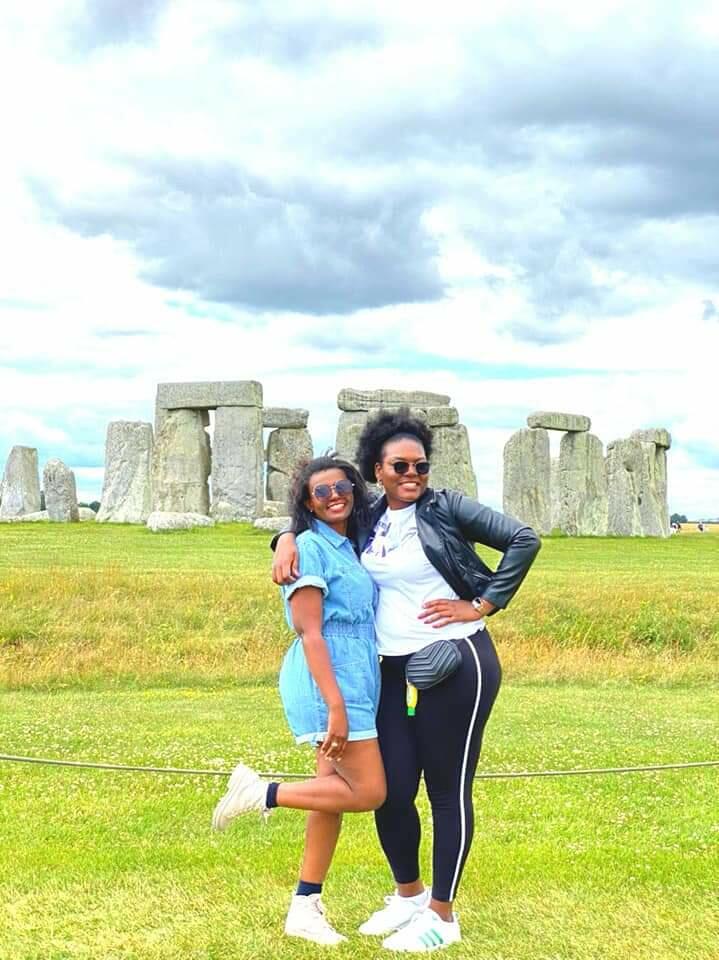
QN 1: Tell us about your experience of moving to London and studying there
However peculiar and unconventional this year has been due to the outbreak of COVID-19, my tenure in London has taught me so much and has given me many beautiful memories and experiences. I remember being both excited and intimidated by the prospect of moving to and studying in London. Being able to study at a world class university quite renowned for the quality of its research, teaching body and alumni community, I had the opportunity to interact and learn in class and outside. I was able to experience both face to face sessions during the first part of my course, switching to online classes during the lockdown.
My classmates were from a variety of academic backgrounds, nationalities, and career levels. During group exercises we were mixed randomly and this helped me to connect and learn from peers who were from non-medical backgrounds, fresh from undergraduate study, people who have worked for several years and are just embarking on their research career and those who have worked in research for some time but wanted to hone their epidemiological skills.
Outside of school I enjoyed a lot of tourist attractions in London and outside. I visited the London eye, the British museum, the national gallery, Madame Tussauds wax museum, went on a London bus tour, a river cruise, watched the fireworks at Blackfriars for New Year’s Eve and enjoyed a stroll in many parks and green spaces around London. I also had an opportunity to travel to Wales and enjoy some scenic walks in the castles, the beach, and the docks. I visited Stonehenge historic site and was excited to visit as it has been a screen saver on my windows XP for years - little did I know that one day I was going to be able to see the stones live. My most fun memory in London was the Winter Wonderland in Hyde Park before the Corona virus outbreak, where I enjoyed adrenaline rushes in many rides. I also explored new activities like bird watching, hiking and yoga with a group of friends, which helped me stay sane during the lockdown.
Qn 2: What was your key learning from the Msc
Generally, I would say I learned to think critically about what I read and became more analytical about what I see in the world around me. A course in epidemiology has helped me to gain conceptual and design skills to be able to design epidemiological studies to answer important public health and clinical questions, to critically appraise literature and has taught me key statistical skills for the analysis of data.
On a personal level, I learnt to be more patient with myself and be to more resilient, to keep working hard to achieve my goals. Studying away from home can be stressful and strenuous at times but it is all worth it at the end.
Qn 3: Describe your summer project
My summer project was a systematic review and meta-analysis on the prevalence of microvascular and macrovascular complications of diabetes in newly diagnosed type two diabetic patients in low- and middle-income countries. I found out that at diagnosis, one in ten patients presented with retinopathy, two in ten patients presented with nephropathy and two in ten patients presented with neuropathy. For macrovascular complications, the pooled prevalence of ischaemic heart disease was 11%, peripheral arterial disease was 8% and stroke was 2%. This shows that a large proportion of patients presents with complications at the time of diagnosis and therefore highlights the underlying burden of undiagnosed diabetes in low- and middle-income countries. This calls for health systems strengthening including putting in place efficient screening programs for diabetes and its complications for early diagnosis and treatment. I also found out a huge paucity of studies from sub-Saharan Africa where the burden of undiagnosed diabetes is the highest compared to the rest of the world.
Qn 4: Would you encourage other people to do an MSc and why?
I would definitely encourage others to do a masters degree if they want to pursue a career in research and academics or public health programs. I remember two years ago working as a study doctor in a clinical trial and feeling inadequate and underutilised: I was GCP trained and well trained for the trial and performed my tasks well, but I felt like I was missing a lot and that there was just this gap of knowledge. I wanted to be in a position to design a study such as the one I was working on and be able to analyse the data I was collecting daily in my job. My training as a medical doctor with a few classes in epidemiology did not equip me with the skills I needed. It was important to do a master’s degree where I had the opportunity to do courses in study design, clinical trials, modelling, and advanced statistical methods that has equipped me with the skills to do what I love doing for the rest of my career.
QN 5: What are you working on now and how are you using the new knowledge that you have acquired?
I’m currently on leave; after which I will join the team at NIMR Tanzania to coordinate a new study. In the meantime, amidst actively looking for a house in Dar es salaam, travelling to see my parents, in laws and relatives in the regions, I am trying to squeeze in time to turn my summer project into a publishable manuscript.
I hope to use the knowledge I acquired, such as conceptual epidemiological skills and study design, to contribute to proposal writing for studies and offering oversight and mentorship to staff collecting data in study sites. I want to use my statistics skills to work with and learn from the data management team and senior researchers in the analysis and interpretation of data, and to write reports and journal articles.